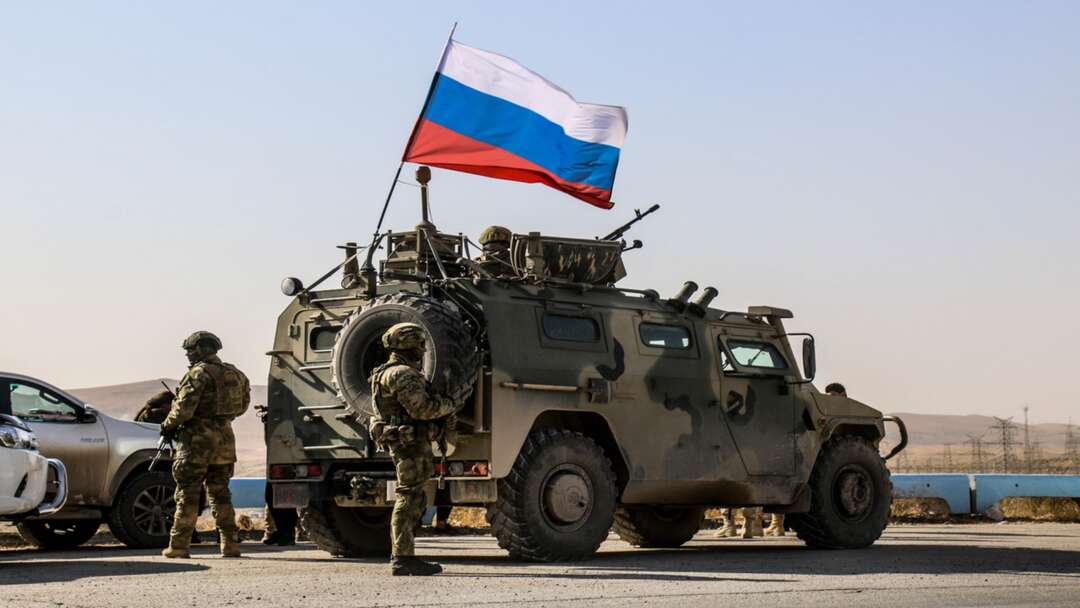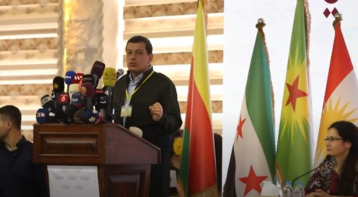-
Russia Maneuvers Between Tehran and Tel Aviv on Syrian Territory
-
Russian maneuvers in Syria reveal Moscow's attempts to maintain its interests in the region without provoking Israel or losing its alliance with Iran

The Syrian arena is witnessing intensive Russian diplomatic movements to control escalating tensions between Iran and Israel, amid increasing Israeli strikes on Iranian sites inside Syrian territory since the war on Gaza began.
Moscow has initiated ongoing consultations with the Iranian side, aimed at restricting Tehran's movements and its armed factions in Syria, seeking to avoid further Israeli escalation.
The Russian leadership is trying to convince Tehran to refrain from launching attacks from Syrian territory toward Israel, especially after repeated drone launches by pro-Iranian factions toward the Golan area.
Russia fears the possibility of Israeli strikes expanding to affect military facilities belonging to the Syrian regime, or Tel Aviv deciding to expand its operations in southern Syria.
Moscow avoids showing public opposition to Israeli activity, fearing it might push Tel Aviv to increase its support for Ukraine in response to any Russian position that could be interpreted as bias toward Iran.
Russia adopts a balanced policy between Tehran and Tel Aviv, limiting its demands on Iran to organizing and concealing its activity from Israeli monitoring, without demanding its complete cessation, while not preventing support from reaching Iranian-backed factions, including Hezbollah.
In return, Moscow overlooks repeated Israeli raids on Iranian sites in Syria, receiving advance notifications from Tel Aviv about planned attacks to avoid any friction between the parties.
Russia has pledged to Israel to restrict Iran's use of Syrian airports for weapons transfer, however, Lebanese sources confirm the continued flow of Russian weapons from Syrian regime possession to Hezbollah through the Bekaa region.
The distinction in Israel's targeting of Syrian forces is notable, where strikes affect Iran-linked formations like the Fourth Division, while avoiding targeting units associated with Russian influence like the 25th and 30th Divisions and the Republican Guard.
Russia continues its movements in Syria to protect its influence and prevent the weakening of the Syrian regime, maintaining communication channels with various active powers, waiting for developments that might push it toward either toughening its position on Iranian influence or tolerating it according to its interests in the conflict with the West.
Levant-Agencies
You May Also Like
Popular Posts
Caricature
BENEFIT Sponsors BuildHer...
- April 23, 2025
BENEFIT, the Kingdom’s innovator and leading company in Fintech and electronic financial transactions service, has sponsored the BuildHer CityHack 2025 Hackathon, a two-day event spearheaded by the College of Engineering and Technology at the Royal University for Women (RUW).
Aimed at secondary school students, the event brought together a distinguished group of academic professionals and technology experts to mentor and inspire young participants.
More than 100 high school students from across the Kingdom of Bahrain took part in the hackathon, which featured an intensive programme of training workshops and hands-on sessions. These activities were tailored to enhance participants’ critical thinking, collaborative problem-solving, and team-building capabilities, while also encouraging the development of practical and sustainable solutions to contemporary challenges using modern technological tools.
BENEFIT’s Chief Executive Mr. Abdulwahed AlJanahi, commented: “Our support for this educational hackathon reflects our long-term strategic vision to nurture the talents of emerging national youth and empower the next generation of accomplished female leaders in technology. By fostering creativity and innovation, we aim to contribute meaningfully to Bahrain’s comprehensive development goals and align with the aspirations outlined in the Kingdom’s Vision 2030—an ambition in which BENEFIT plays a central role.”
Professor Riyadh Yousif Hamzah, President of the Royal University for Women, commented: “This initiative reflects our commitment to advancing women in STEM fields. We're cultivating a generation of creative, solution-driven female leaders who will drive national development. Our partnership with BENEFIT exemplifies the powerful synergy between academia and private sector in supporting educational innovation.”
Hanan Abdulla Hasan, Senior Manager, PR & Communication at BENEFIT, said: “We are honoured to collaborate with RUW in supporting this remarkable technology-focused event. It highlights our commitment to social responsibility, and our ongoing efforts to enhance the digital and innovation capabilities of young Bahraini women and foster their ability to harness technological tools in the service of a smarter, more sustainable future.”
For his part, Dr. Humam ElAgha, Acting Dean of the College of Engineering and Technology at the University, said: “BuildHer CityHack 2025 embodies our hands-on approach to education. By tackling real-world problems through creative thinking and sustainable solutions, we're preparing women to thrive in the knowledge economy – a cornerstone of the University's vision.”
opinion
Report
ads
Newsletter
Subscribe to our mailing list to get the new updates!






















